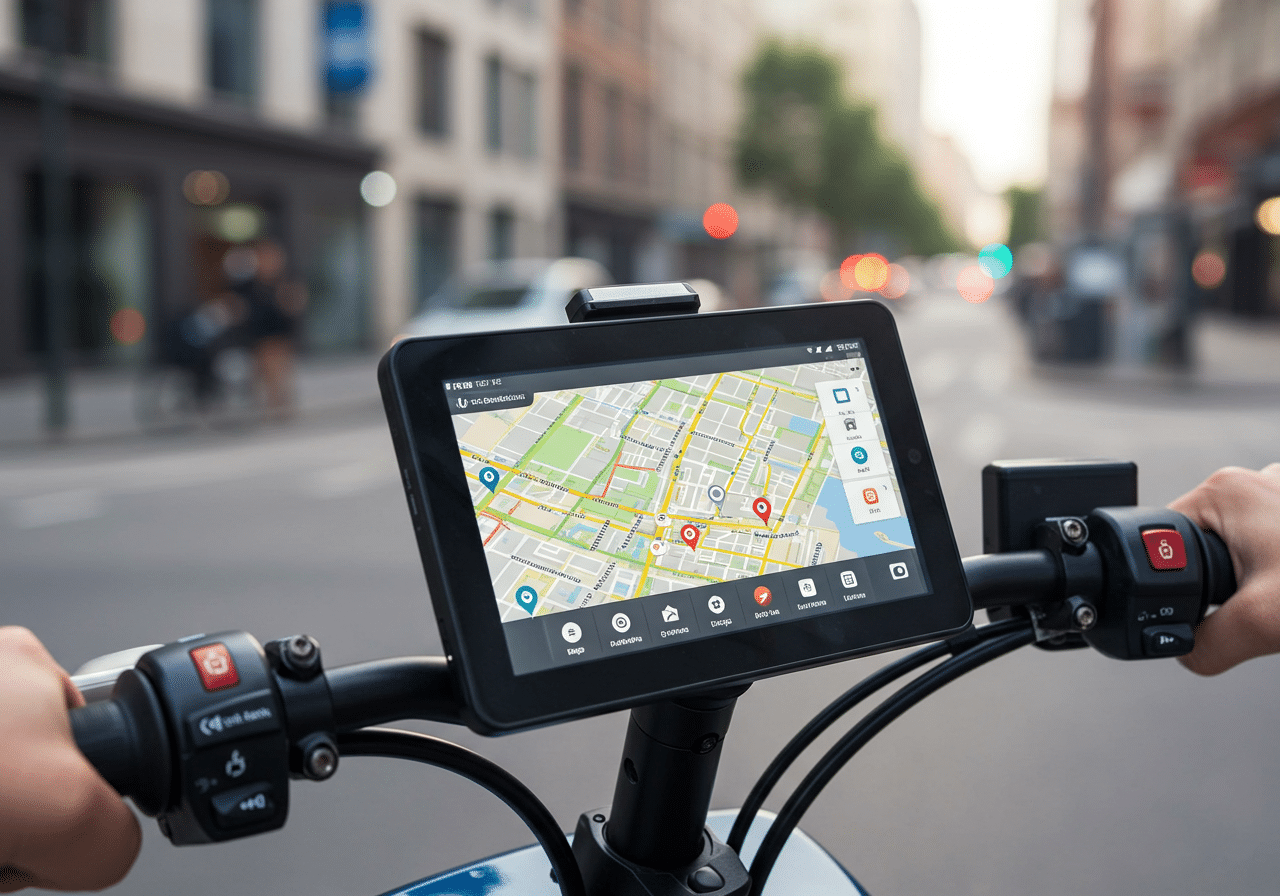Urban logistics is undergoing a major shift, thanks to artificial intelligence (AI). From optimizing delivery routes to predicting demand patterns, AI is reshaping how goods move through cities. As urban populations grow and e-commerce expands, the need for faster, more efficient logistics has never been greater. AI-driven solutions are helping businesses cut costs, reduce delivery times, and minimize environmental impact, making cities smarter and more connected than ever.
The Role of AI in Urban Logistics
AI is at the heart of modern urban logistics, using data-driven algorithms and machine learning to improve efficiency. Logistics companies leverage AI to optimize everything from warehouse management to last-mile delivery. By analyzing vast amounts of data, AI can identify trends, predict challenges, and offer solutions in real time.
Here’s how AI is making a difference in urban logistics:
1. Route Optimization for Faster Deliveries
AI-powered route optimization tools analyze traffic conditions, weather patterns, and delivery schedules to determine the fastest and most efficient routes. Traditional delivery planning often relies on static maps and human decision-making, but AI introduces real-time adaptability.
- Dynamic route adjustments: AI can reroute drivers based on real-time traffic updates, avoiding congestion and reducing delays.
- Fuel efficiency: Optimized routes lead to lower fuel consumption, cutting costs and reducing carbon emissions.
- Predictive route planning: AI analyzes historical data to anticipate peak traffic times and suggest alternative delivery windows.
2. Predictive Analytics for Demand Forecasting
AI-driven predictive analytics allow logistics companies to anticipate demand fluctuations, preventing supply chain disruptions. By examining past sales data, economic indicators, and even weather patterns, AI helps businesses plan ahead.
- Better inventory management: Companies can stock warehouses efficiently, ensuring products are available when and where they are needed.
- Reduced waste: AI minimizes excess inventory and helps prevent product spoilage, especially for perishable goods.
- Improved customer experience: Accurate demand forecasting means fewer stockouts and faster order fulfillment.
3. AI-Powered Last-Mile Delivery Solutions
The last mile—the final step in a delivery’s journey to the customer—is often the most challenging and costly. AI is revolutionizing last-mile logistics by enhancing efficiency and reducing delivery times.
- Autonomous delivery vehicles: AI enables self-driving delivery robots and drones, reducing dependency on human drivers.
- Smart parcel lockers: AI-powered lockers allow customers to pick up packages at their convenience, reducing failed deliveries.
- Dynamic rerouting: AI systems adjust delivery routes in real time to accommodate last-minute changes or delays.
4. Smart Warehousing and Robotics
AI is transforming warehouse operations by automating sorting, packaging, and inventory tracking. Smart warehouses use AI-driven robots to streamline logistics, improving speed and accuracy.
- Automated picking and packing: AI-powered robots quickly identify, retrieve, and pack items for shipment.
- Inventory monitoring: AI helps track stock levels, preventing shortages and reducing overstocking.
- Faster order fulfillment: Automated processes reduce processing times, enabling faster deliveries.
5. Traffic Management and Sustainable Logistics
Urban congestion is a major challenge for logistics companies. AI-driven traffic management systems analyze real-time data to optimize delivery schedules, reducing unnecessary road traffic.
- Smart traffic lights: AI adjusts signal timings to improve traffic flow and prioritize delivery vehicles.
- Eco-friendly routing: AI suggests fuel-efficient routes, cutting emissions and lowering environmental impact.
- Shared delivery models: AI facilitates shared deliveries among multiple businesses, reducing the number of vehicles on the road.
The Future of AI in Urban Logistics
As AI continues to evolve, its impact on urban logistics will only grow. Future advancements may include:
- Greater adoption of autonomous vehicles for delivery.
- AI-driven customer service chatbots for real-time tracking and support.
- Blockchain-powered AI logistics for secure and transparent supply chains.
Companies that embrace AI-driven logistics will gain a competitive edge, offering faster, more reliable deliveries while reducing costs and environmental impact.
Why AI Matters for Fernhay
At Fernhay, we are committed to revolutionizing urban logistics with sustainable, intelligent, and highly efficient delivery solutions. AI plays a crucial role in optimizing our zero-emission cargo solutions, route planning, and last-mile delivery innovations. By leveraging AI-driven predictive analytics and smart traffic management, Fernhay ensures that businesses can navigate urban congestion efficiently while reducing their environmental impact. As cities continue to evolve, AI-driven logistics will be essential for meeting the demands of fast, sustainable, and cost-effective deliveries. At Fernhay, we’re embracing AI to build a smarter, greener future for urban logistics.
Final Thoughts
AI is no longer just a futuristic concept—it’s already transforming urban logistics. From smarter route planning to automated warehouses, AI is revolutionizing how goods move through cities. As businesses continue to integrate AI into their logistics strategies, urban delivery systems will become more efficient, sustainable, and customer-friendly.
For companies looking to stay ahead in the fast-changing world of urban logistics, investing in AI is no longer optional—it’s essential.

